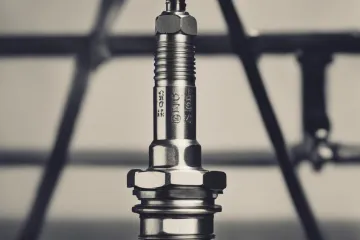Are radar detectors legal in Washington state?

Are radar detectors legal in Washington State?
Radar detectors are electronic devices that are used by drivers to determine if their speed is being monitored by law enforcement through the use of a radar gun. The idea behind the device is that once a driver knows they are being scanned by radar, they can adjust their speed quickly to avoid a ticket. They work passively, simply taking in the radar and do not require any sort of active monitoring. Radar detectors are sold online and in many stores, and are used by millions of Americans every day. However, are they legal in Washington state?
Short answer – yes. According to the American Automobile Association (AAA), radar detectors are permitted in passenger/private vehicles, but prohibited for use by commercial vehicles within the state of Washington.
To better understand why radar detectors are legal in Washington, as well as whether they are legal in other states, you have to go to the source — the Communications Act of 1934. The act helped organize federal regulations of telephones, telegraphs, and radio communications. As a federal regulation, it also set a baseline set of instructions for using these technologies that applied to all states. Additionally, it created the Federal Communications Commission (FCC) to oversee these industries, but also provided states the freedom to be stricter in their management of them. This act has been occasionally updated to include new communication technologies, such as different forms of broadcasts, cable, and satellite television.
As time passed and technology changed, the act was modified. It has established that radar detectors are generally legal in private vehicles — with some exceptions of course. One large exception applies to commercial vehicles over 10,000 pounds, which makes radar detectors illegal everywhere under the United States Department of Transportation (DOT) regulation. Any driver found operating a radar detector in a commercial vehicle is subject to ticketing and/or license suspensions.
Additionally, due to this act, it is against the law for law enforcement to seize or destroy your device without arresting you for another crime. It is, after all, your personal property.
However, while we have established that it is generally legal to own a radar detector, it is not always legal to use them. Certain states like Virginia and Washington D.C. have even gone so far as to pass laws specially banning their use. Those caught operating a radar detector are subject to ticketing. It is also generally illegal to use a radar detector while on a military installation. Most military installations will ask the driver to remove the device and keep it out of sight while on base.
Some states also have rules about the legality of where the radar detector is mounted. California and Minnesota, for example, have laws against attaching anything to the windshield that could impair the driver’s vision, including radar detectors. Other states have similar rules, but may not be as strictly enforced. It is generally recommended that if you are crossing state lines, to keep the radar detector off the windshield and instead mounted on the sun visor or dash.
One key distinction to note is that while radar detectors are generally legal, radar jammers are illegal under federal law. Radar jammers are unique in that they don’t just detect the use of a radar detector, but they also overpower the radar detector fired by law enforcement. Those found using a radar jammer could face felony charges, large fines, and even jail time.
Similar to RADAR, is a technology called “LIDAR” which is increasingly being adopted by law enforcement to measure the speed of vehicles. To alert drivers when this new technology is being used, LIDAR detectors and laser jammers are now on the market. LIDAR detectors are not usually as effective as radar detectors, because the emissions they look for are less frequent, more focused, and more difficult to scatter than radar. All of these reasons give drivers less time to react if their LIDAR detector alerts them of a LIDAR device, or may never even detect the beam of the laser if it is pointed at a part of a vehicle where the sensor cannot detect it.
Because they are not as easily detected, the more effective method is to jam them. However, unlike radar jammers, laser jammers are currently in a grey area with the FCC. Several states have already made them illegal — specifically California, Colorado, Illinois, Minnesota, Oklahoma, South Carolina, Tennessee, Texas, Utah, Virginia, and Washington D.C.
For those drivers residing in Washington state, you can own and operate your radar detector without fear in your personal/private vehicle. When crossing state lines, however, be careful of its placement and the usage legality according to the specific state.














No Comment